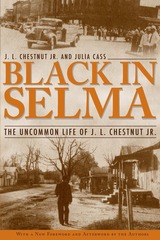
For three decades, beginning with the Symphonie fantastique composed in 1830, Hector Berlioz and his music embodied the élan and exuberance of the Romantic era. This captivating and sumptuously illustrated biography is not only a complete account of Berlioz’s life, but an acute analysis of his compositions and description of his work as conductor and critic, as well as a vivid picture of his musical world.
D. Kern Holoman paints a full-length portrait of Berlioz: his personal and family life, his intellectual development and pursuits, his methods of composing (Berlioz at his work table, so to speak), the aim and style of his music criticism and travel writing, his innovations in staging and conducting performances, and his interaction with other composers, including Liszt, Mendelssohn, Wagner, Schumann, Glinka, Brahms, Verdi, Saint-Saëns, Gounod. In discussing Berlioz’s music, Holoman talks about specific techniques, takes note of influences and borrowings, and analyzes the concept of programmatic music developed in Symphonie fantastique, Harold in Italy, Romeo and Juliet, and The Damnation of Faust.
While following Berlioz’s career, we get a rich sense of the world in which he moved. We see the requirements and excitements of foreign concert tours, the music publishing and instrument-making businesses, the development of the modern concept of orchestral conducting, the use of newspapers for publicity, the composer’s working relations with impresarios and soloists.


Hector Berlioz (1803–1869) has long been a difficult figure to place and interpret. Famously, in Richard Wagner’s estimation, he hovered as a “transient, marvelous exception,” a composer woefully and willfully isolated. In the assessment of German composer Ferdinand Hiller, he was a fleeting comet who “does not belong in our musical solar system,” the likes of whom would never be seen again. For his contemporaries, as for later critics, Berlioz was simply too strange—and too noisy, too loud, too German, too literary, too cavalier with genre and form, and too difficult to analyze. He was, in many ways, a composer without a world.
Berlioz and His World takes a deep dive into the composer’s complex legacy, tracing lines between his musical and literary output and the scientific, sociological, technological, and political influences that shaped him. Comprising nine essays covering key facets of Berlioz’s contribution and six short “object lessons” meant as conversation starters, the book reveals Berlioz as a richly intersectional figure. His very difficulty, his tendency to straddle the worlds of composer, conductor, and critic, is revealed as a strength, inviting new lines of cross-disciplinary inquiry and a fresh look at his European and American reception.
READERS
Browse our collection.
PUBLISHERS
See BiblioVault's publisher services.
STUDENT SERVICES
Files for college accessibility offices.
UChicago Accessibility Resources
home | accessibility | search | about | contact us
BiblioVault ® 2001 - 2024
The University of Chicago Press









